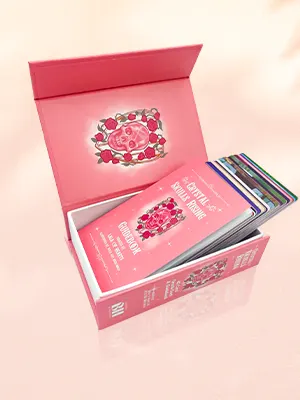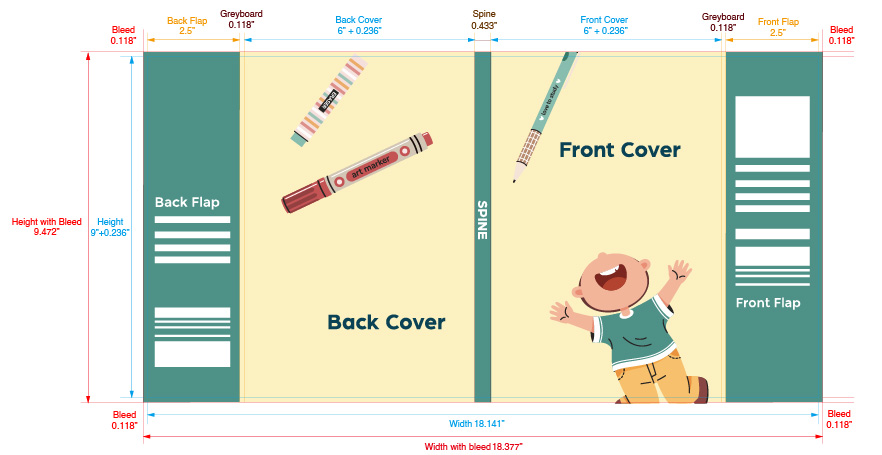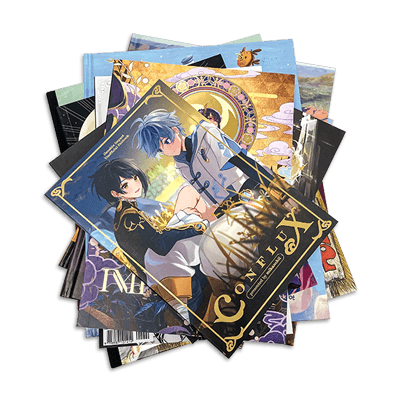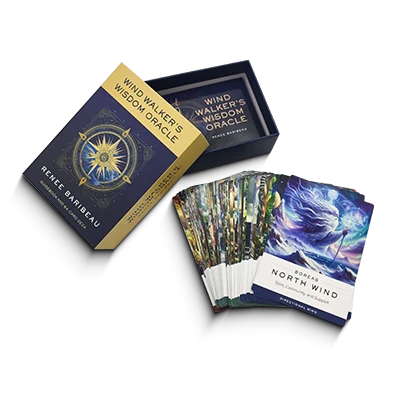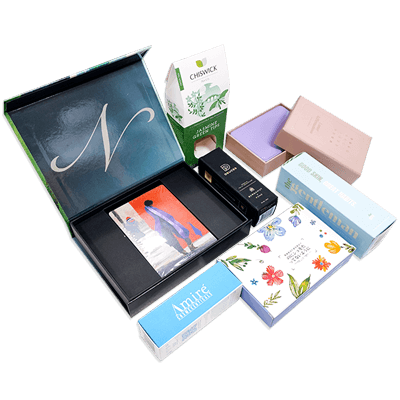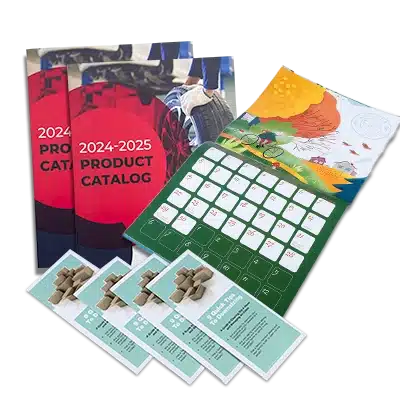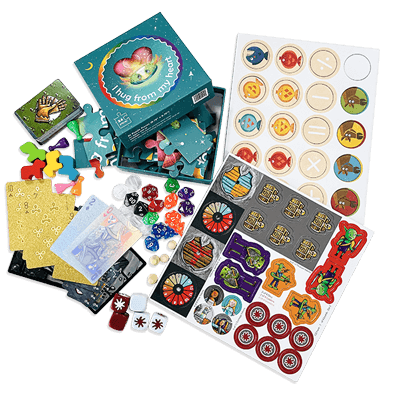Book Dust Jackets
Dust jackets are a valuable addition to any book as they provide protection and ten extra printable surfaces for artwork, author information, and marketing content.
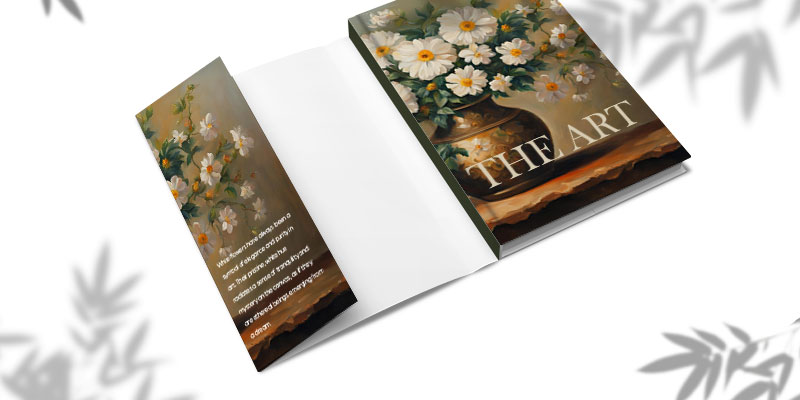
What is a dust jacket?
A dust jacket is a single sheet of paper long enough to wrap around your hardcover book with a flap covering about a third of the inside front cover and then extending across the front, spine, and back of the book to another flap which covers about a third of the inside back cover.
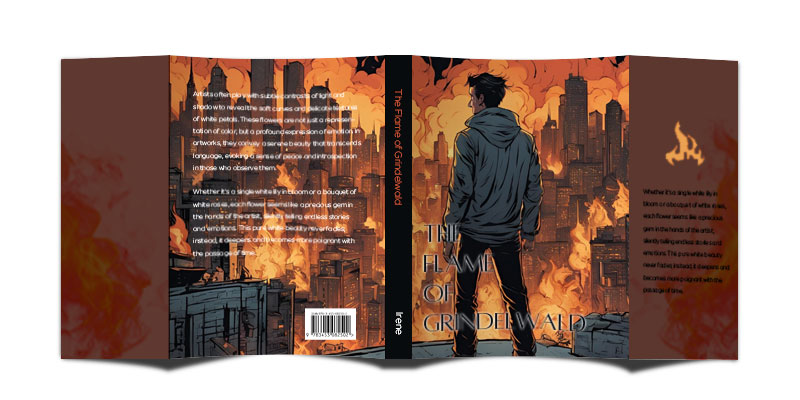
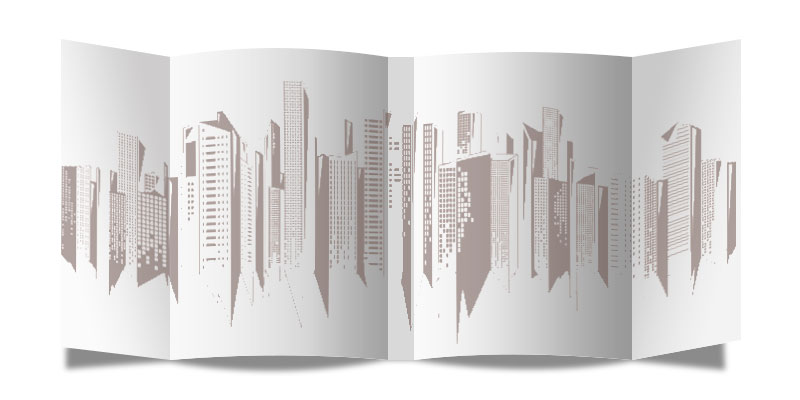
What's the difference between a dust jacket and a paperback book cover with flaps?
A dust jacket is a removable printed sheet that wraps around a hardcover book, with flaps folding inside the front and back covers. It protects the book and adds extra printable space for artwork, summaries, reviews, or author information.
A paperback cover with flaps (sometimes called “French flaps“) is part of the book’s soft cover itself. The cover is printed longer and folded inward to create flaps, which can hold similar content but don’t offer the same protective layer as a dust jacket.
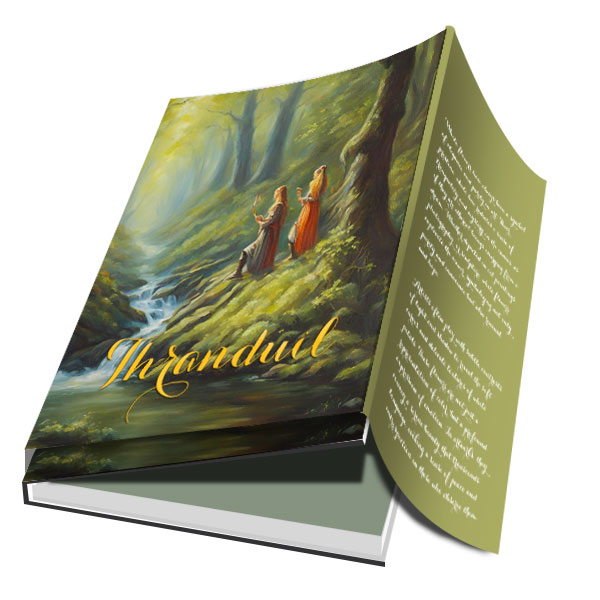
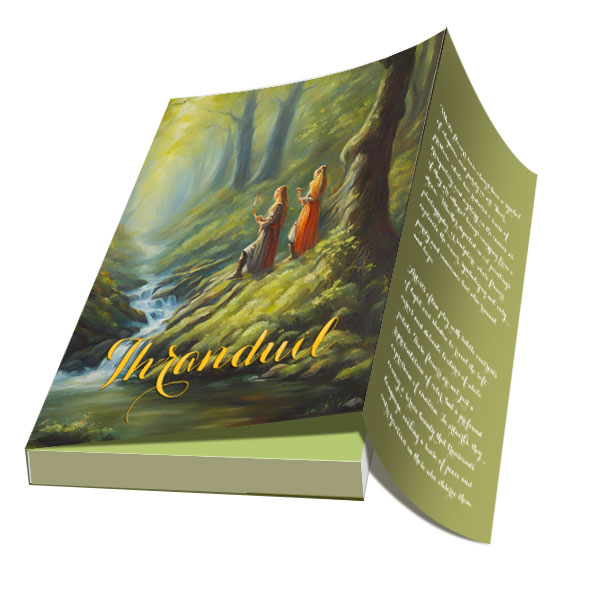
How to calculate the dust jacket size?
If you use our free template, the engine will automatically calculate everything for you with exact precision. Still, it may be useful for you to know how to work out the proper size of your dust jacket if you’d like to build your own template.
Dust jackets must be designed as a two-page spread—so a single template stretching across the flaps, covers, and spine as if it was one long surface. Depending on the design software you use, this might be known as a “double page” or as a “single spread”.
The dust jacket size is calculated as follows:
Length: Book spine thickness + cover length * 2 + greyboard thickness * 2 + flap length * 2
Height: Cover height.
If you’re working with a design file, remember to add a bleed of 6mm/0.25inch (3mm/0.125inch on each side).
If there’s anything about this set up that confuses you. Just get in touch and we’ll help you create your design file correctly.
How long should a hardcover dust jacket flap or a paperback cover flap be?
As a broad rule of thumb, a dust jacket flap is usually equal to about a third of the cover width and just very slightly higher. That said, some book design have inside flaps as deep as the space will allow while others are no more than an inch or so, just enough to tuck around the outer cover and keep the jacket in place. Much depends on your design and the genre and format of your book. However, as a guideline, here’s a handy chart showing our recommendations for flap lengths based on the most popular and common book sizes:
| Book Size (Width × Height) | Flap Width |
|---|---|
| 8.5" × 11" | 3.5" |
| 11" × 8.5" | 4.7" |
| 8.5" × 5.5" | 3.5" |
| 5.5" × 8.5" | 2.3" |
| 6" × 9" | 2.5" |
| 9" × 6" | 3.9" |
| 7" × 10" | 2.5" |
| 10" × 7" | 3.5" |
What's the best paper for a dust jacket?
In theory, you could choose from a range of papers for your dust jackets. However, in practice, we strongly recommend coated paper, also known as “art” paper. Coated art paper may be gloss or matte and is far and away the best paper option for photographs, images, graphics, and colorful backgrounds.
- The best paper weights for a standard dust jacket are 157 gsm / 106 lb or 200 gsm / 135 lb depending on the size and surface area of your book.
- If you want it embossed or debossed, you had better to choose 250 gsm / 92.4 lb art paper or thicker paper for the dust jacket.
- If you wish, you can also use textured paper for a unique look and feel.
Dust Jacket Finishes
Just like a book cover, a dust jacket can be enhanced with a variety of special finishes to make it visually striking and tactilely appealing. Options include gloss or matte lamination, soft-touch coating, spot UV, embossing, debossing, and foil stamping. You can apply these finishes individually or combine them to create a unique look for your book.
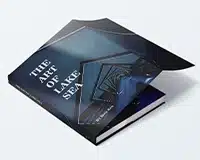
results in a cover surface that has a bright, reflective sheen, like polished glass. It keeps color prints looking crisp and vibrant.
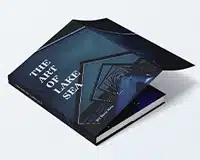
gives a protective finish which is less "glassy" than gloss lamination. It lends a stylish elegance to any dust jacket and is popular if you need a more sophisticated look.

sometimes also called "velvet", "silk", or "peachy" lamination. It's both visual and tactile and gives a greater sense of depth to full-color printing while being beautifully soft and velvety to the touch.
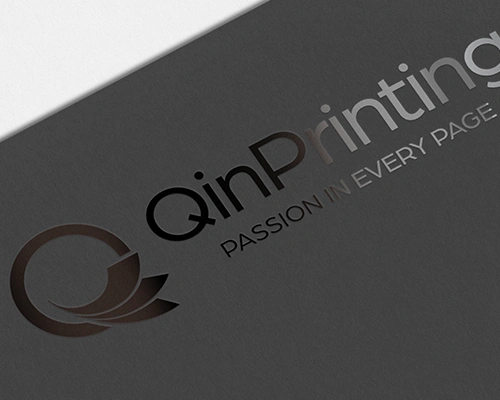
a "special effect" applied only to specific and clearly defined elements of your dust jacket design that you want to highlight and to which you wish to draw special attention. It works best on matte or soft-touch laminated surfaces.
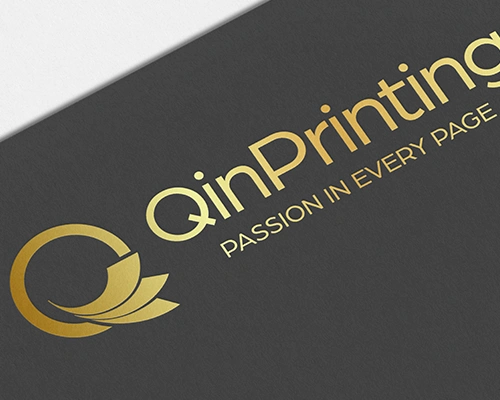
sometimes known as hot stamping—we use this technique to add metallic effects to a printed surface. Popular colors are gold and silver, but we can also apply holographic effects and a full range of other metallic colors.
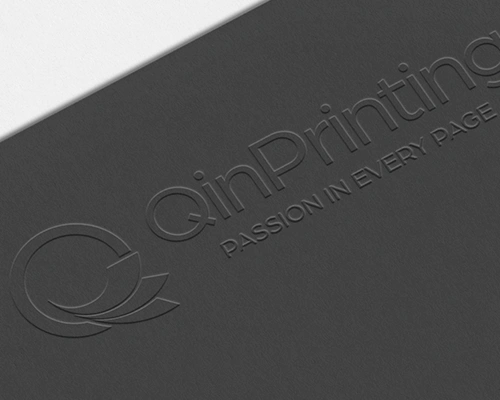
embossing raises the selected area above the surrounding surface. It can be combined with foil stamping and colored with ink, or they can be left as they are.
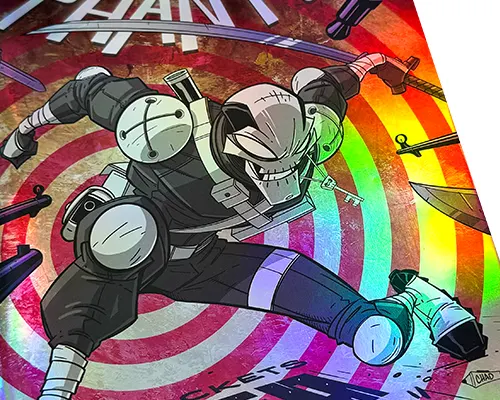
Print your design on a special paper that reflects light in a rainbow-like pattern.
What is the point of a dust jacket?
Dust jackets have several functions. First and foremost is to add another layer of protection to your primary cover and interior pages. According to Biblio, dust jackets were first added to cloth bound books back in the 1800s, although they didn’t become popular until the early 20th century by which time printers had started adding text to the flaps as well as the covers and spine.
It’s this additional printable “real estate” that offers the second major advantage of a dust jacket: information and marketing. You’ll almost certainly have seen the ways in which mainstream publishers use the inner flaps of the dust jacket to add extra materials such as
- An author biography
- A list of other publications by the same author
- Prizes and awards
- A more detailed summary than the typical back cover blurb
- Reviews and plaudits
- CTAs (calls-to-action) like visiting the author’s website, blog, signing up to their newsletter or leaving a review
This is no small advantage, especially for the independent author for whom building their email list and obtaining positive reviews is the backbone of any promotional strategy. And as dust jackets are relatively cheap to produce, you can create more than one for the same book. Why, you may ask, would you want to do that?
There are at least two answers. The first is that with several alternative covers (at the cost of printing just one extra piece of paper!) you can A/B test them to see which one attracts more sales and then go with the one which will bring more profits. The second is that you can target different demographics if your book has crossover appeal. Mainstream publishers do this often. Think about the Harry Potter series, for example, which is available in a range of covers marketed either at children, at teens, or at adults. You could do the same kind of thing. If you have a romance thriller suitable both for the YA market and adult readers, you could produce three dust jackets for the same book: one aimed at the YA market, one emphasizing the romance element, and another more keyed to the thriller aspect of the story. You get the idea. For the cost of printing one additional piece of paper, you capture three times the market and boost sales and profits.
While most commonly associated with hardcover books, you can add a dust jacket to a paperback, too. In most cases, when adding a dust jacket to a softcover book, the inside of the jacket is left blank or given a textured or colored covering. However, there’s no reason why you shouldn’t add information and content to those areas if you wish.
To make life easier for you—or your designer—we’ve developed a range of ready-made book design template which are free to download and are compatible with almost all popular professional design software. So, if you wish, you can download a dust jacket hardcover book template or a paperback cover template with cover flaps added here: Book Design Templates. Just input your book details in the relevant fields and remember to check the “Dust jacket” box. Then click download and our engine will automatically generate your customized template!

